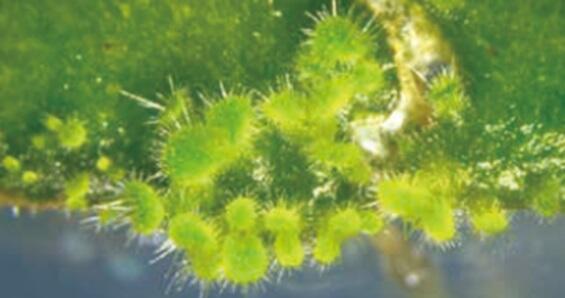
Associate Professor, Graduate School of Science and Technology, Nara Institute of Science and Technology
Q1. Why did you choose a career in research?
A1. I was attracted by hypothesis-driven research in plant sciences
I've been interested in plants since I was a child and loved to go hiking with my family and observe alpine plants. I soon developed a desire to uncover the secrets of plants by myself by becoming a researcher. I wanted to explore how the shapes of plant flowers and leaves are determined.
I chose my current area of specialization because I was attracted to hypothesis-driven research through my university studies. Even if you have an interesting phenomenon or hypothesis, it will end up as just a hypothesis unless you have technologies and approaches to test it. Deeply impressed by the spectacular results of molecular genetics using the model plant Arabidopsis thaliana, I decided to enter the botany course in the Department of Biological Sciences.
Plants are passive entities that cannot move spontaneously, and are eaten or pulled out by animals. Nevertheless, they successfully flourish across the planet because they have survival strategies that are different from those of animals. I would like to unravel the unique survival strategies of plants.

Q2. What are you aiming to achieve through your research?
A2. Identification of regulatory mechanisms that determine differentiation fates of pluripotent callus cells
Plants have the capacity to self-repair damaged tissue and to create new organs from wounds and isolated cells. My research aims at unraveling the mechanisms behind these regenerative responses. My FOREST project is focused on elucidating the mechanisms underlying the regulation of organ regeneration capacity.
When we isolate a piece of plant tissue and artificially culture it, a "callus" is formed. A callus is a cell mass capable of differentiation into various organs such as roots and leaves. To identify factors determining the differentiation fate of callus cells whether to develop into adventitious shoot buds, we cultured Arabidopsis thaliana tissue and analyzed functions of some transcription regulators. We identified WOX13 as a transcription regulator that controls differentiation fates and regenerative responses of the callus cells.
By modifying WOX13 function, we achieved to dramatically improve the efficiency of tissue culture, which is essential for genetic engineering. Moving forward, I will clarify the mechanistic details of organ regeneration and investigate whether WOX13 has similar effects in other plants.

Q3. Do you have any message for future researchers?
A3. Study broadly and try your best
As a graduate student, I could not advance my research as I had initially hoped, and when I earned my doctorate, I was worried about whether I could build my career as a researcher. However, my experience of thoroughly thinking through "how to solve problems" in my student days is still beneficial today. Then, I did my best to tackle my new research project as a postdoctoral researcher with my back to the wall. The theme at that time led me to where I am now.
Although there is a recent trend toward earlier professional education, I hope you learn wide fields of study while you are a student. It is important to have knowledge outside your field of expertise and know what is required in society to consider how your research results and technology can be applied.
Many principles in nature, such as plants' regenerative ability, have yet to be elucidated. Discoveries can only be made through steady work. I encourage you to follow your own path and take on the challenge of many mysteries.
(Article: Kayo Murakami)

Profile
Momoko Ikeuchi
Associate Professor, Graduate School of Science and Technology, Nara Institute of Science and Technology
Born in Saitama Prefecture. Obtained doctorate from the Department of Biological Sciences, Graduate School of Science at the University of Tokyo in 2012. Ph.D. (Science). Has been in her current position since 2022. Previous positions include Special Postdoctoral Researcher at RIKEN and Associate Professor at the Faculty of Science at Niigata University. FOREST researcher since 2022.




